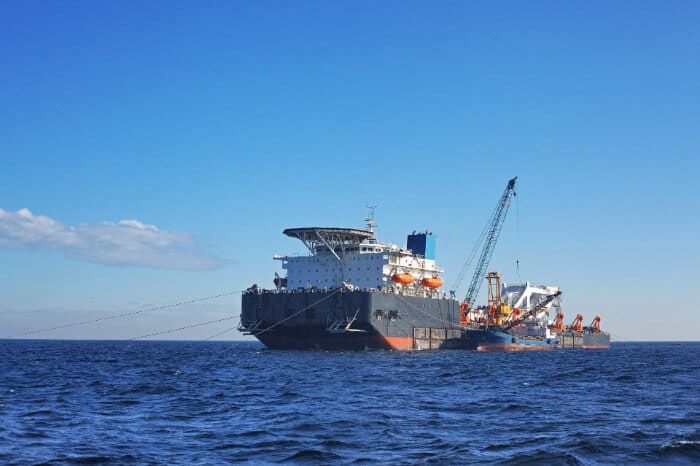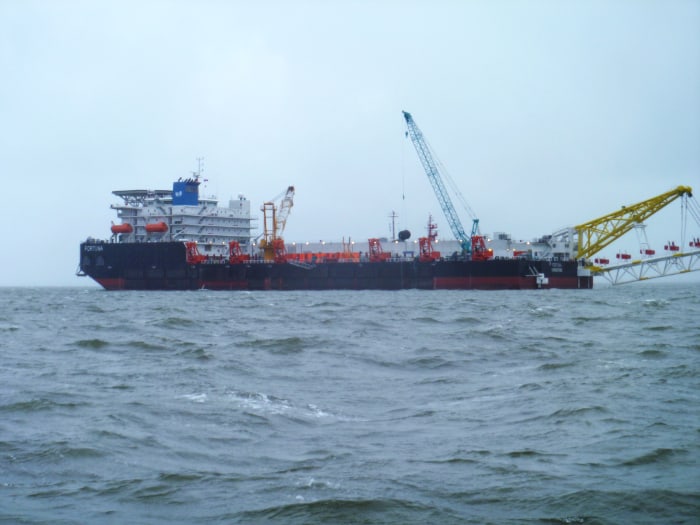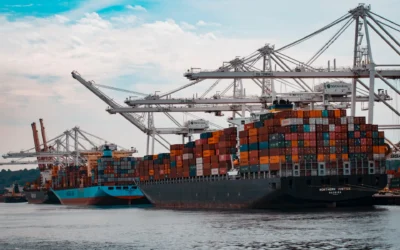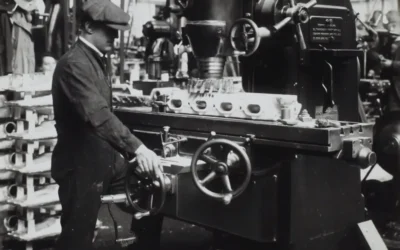PCB manufacturing and molding challenges:
Increasing Shipping Costs and Multiplying Problems
How can businesses protect themselves
against the difficulties
of the intercontinental
supply chain?
The COVID-19 pandemic has shown its worst side in almost all segments of the economy in the past one and a half years. The restrictions introduced due to the pandemic have caused severe shutdowns strongly trying the entire supply chain from the manufacturing of products and spare parts through shipping to sales. The success or fail of a company may often depend on one single tiny spare part.
If a previously cheap and reliable supplier becomes unavailable, it may lead to slower or dramatically more expensive manufacturing or even to the complete shutdown of production. No company can afford this, since the success in the competition on the market is based on three central pillars: cost-effectiveness, pace and agility.
But what to do if a company does not wish to fall victim to the circumstances and wants to serve its partners and clients as fast as possible, in the best quality and of course at the best price at all times?
Let us show you now, how relocating parts production to Europe may help to maintain production and increasing productivity.
Production in the Far East: Pros and Cons
Talking about large businesses or smaller production or assembly companies, in most cases, we can find a point shared in their operation: most of them cooperate with producers or suppliers in the Far East who can provide them with certain spare parts at low prices.
The greatest benefit of this method is the price of course since the components manufactured in the Far-Eastern countries are usually available at much cheaper prices than parts produced in Europe. Moreover, this is performed at perfect standards and high quality.
Unfortunately, however saving on the one hand, may cause expenses or perhaps other inconveniences on the other. Such may be shipping difficulties, for example.
Shipping from the Far East is often slow and problematic which indirectly influences productivity and also affects profit. Just think about one of the major events of last year, when the Ever Given container ship obstructed the Suez Canal causing very difficult times for a lot of businesses. Nothing presents this better than the astonishing figures that the accident caused a total of USD 550 million loss only to the Suez Canal Authority (SCA), not to mention the financial damage suffered by the businesses involved and their partners.
Not to mention that shipping costs have unrealistically increased recently and manufacturers often cannot keep up with these prices. This leads to a gradual decrease in profits and consumer base in addition to the increasing prices of products.
One small mistake or accident can therefore cause such problems that may not only take weeks to solve but also cause millions, or even billions of losses for a larger company.
Negative Impacts of the Coronavirus
in the Field of Shipping and Production
Perhaps nothing has shown better recently how dangerous it may be to rely on the global supply chain than the COVID-19 pandemic which caused inconvenient months to innumerable European manufacturers by paralysing so many foreign manufacturers and shippers.
The shutdown of factories in the Far East and the closed ports has led to a shortage of supplies, increasing prices and general despair indicating that today nothing can be planned and an unexpected crisis or may lead to the collapse of an entire market. It is true in particular if most companies establish their operation on the cheapest possible supplier solutions.
Production within the EU:
How may it help realise business objectives?
All in all, we can say that direct shipping of spare parts from the Far East – though it seems to be a cheap and effective solution – may be less profitable for several reasons. The problems that seem to be small at first may easily lead to the company becoming incapable of reacting to market demands appropriately and at the required pace.
Therefore, it will not only lose profit but may also spoil its prestige which is not at all profitable in the long term. But what can be the solution to the problem?
If you wish to avoid ever-multiplying difficulties, the best solution may obviously be to relocate the manufacturing of certain products to EU countries, where wages are still considerably lower than the average of the Union.
This way on the one hand you still do not have to be concerned about high production costs while the problem of intercontinental shipping is also solved. Consequently, you can save, as, in addition to the lower shipping costs, you do not have to account for the high customs costs between the borders of the EU.
Not to mention, that production and shipping within the EU guarantee plannability* which is needed by really agile companies that can react to market conditions and customer demands. Amongst others thanks to fast delivery which may become possible even within a few hours.
Would you like us to help you realise your business objectives?
If you want to provide your company with the capacity to reach the pace and high demands of the market as fast and effectively as possible, contact us.
We will help you succeed in your business, independently of the problems of the global supply chain, the ever-increasing prices and the unexpected situations.
Explore more related content
12 reasons why Microfactories are the future of manufacturing
12 reasons why Microfactories are the future of manufacturingMicrofactories: The Future A few days ago, Peter Goodman...
Your products aren’t designed for automation. This is costing you millions
Your products aren’t designed for automation. This is costing you millions.As product designers and engineers, we are...
6 Takeaways from the European Commission’s 2022 Green Deal.
6 Takeaways from the European Commission’s 2022 Green Deal.Last week, the European Commission presented a new package...





